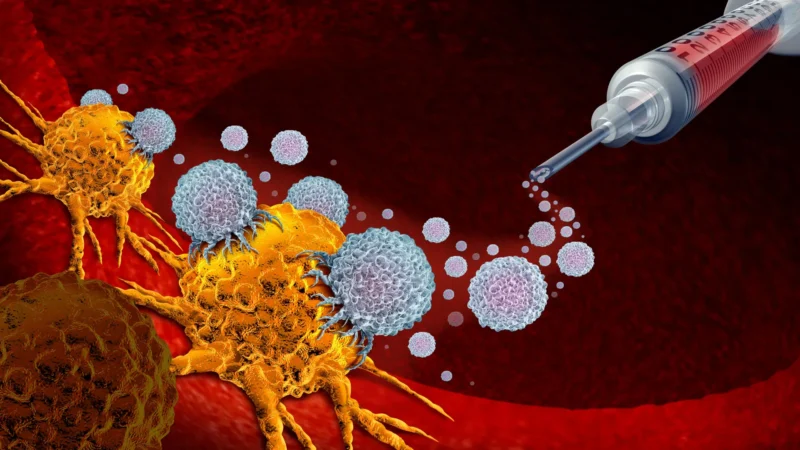Top Highlights
-
Novel mRNA Vaccine Development: Researchers at the University of Florida have developed an experimental mRNA vaccine that increases tumor-fighting effects when combined with immune checkpoint inhibitors, advancing towards a universal cancer vaccine.
-
Immune System Activation: Instead of targeting specific tumor proteins, the vaccine stimulates robust immune responses as if combating a virus, enhancing tumors’ receptivity to treatment via increased PD-L1 expression.
-
Broad Applicability: This research introduces a new paradigm in cancer vaccine development, suggesting that non-targeted mRNA vaccines could elicit strong anticancer responses across various cancer types, potentially leading to off-the-shelf treatments.
-
Promising Results: In mouse models, the vaccine not only boosted the efficacy of existing therapies but also showed capability in eliminating tumors entirely, paving the way for future human clinical trials.
A Groundbreaking Discovery in Cancer Treatment
Recent research from the University of Florida provided a significant breakthrough in cancer therapy. Scientists developed an mRNA vaccine that not only bolstered tumor-fighting effects but also eliminated tumors in mouse models. This innovative approach combined the vaccine with immune checkpoint inhibitors, common cancer treatments. Researchers discovered that instead of targeting specific tumor proteins, they could stimulate the immune system to react as if it were fighting an infection. By enhancing the expression of PD-L1 proteins within tumors, the vaccine made these cancers more susceptible to existing therapies. This finding opens new avenues for treatments that could bypass the need for traditional methods like surgery or chemotherapy.
As the implications of this research unfold, experts are optimistic about its potential application across various cancer types. Traditionally, cancer vaccines focused on identifying specific targets within tumors or tailoring vaccines to individual patients. However, this study introduces an alternative: creating a generalized mRNA vaccine that activates a broad immune response. If successfully translated to human trials, this approach could lead to a universal cancer vaccine that sensitizes patients’ immune systems to fight their unique tumors. The speed at which this research progresses may profoundly impact cancer treatment protocols worldwide.
The Path Ahead for Cancer Immunotherapy
As scientists continue refining the mRNA formulations, the focus will shift toward human clinical trials. The potential for a “one-size-fits-all” cancer vaccine could revolutionize how we understand and treat cancer. By awakening dormant immune responses, this novel approach could empower the body to combat treatment-resistant tumors more effectively. The convergence of mRNA technology with cancer immunotherapy marks a pivot toward a future where vaccines may not only prevent disease but also actively fight existing conditions.
In an age where innovative technologies reshape healthcare, this research aligns with the ongoing human quest for solutions to complex medical challenges. The prospect of an off-the-shelf cancer vaccine holds both hope and promise, as scientists explore ways to enhance its accessibility and effectiveness. As this journey unfolds, humanity stands on the brink of a potential cancer treatment renaissance that may redefine survival expectations and quality of life for millions worldwide.
Continue Your Tech Journey
Stay informed on the revolutionary breakthroughs in Quantum Computing research.
Access comprehensive resources on technology by visiting Wikipedia.
TechV1

